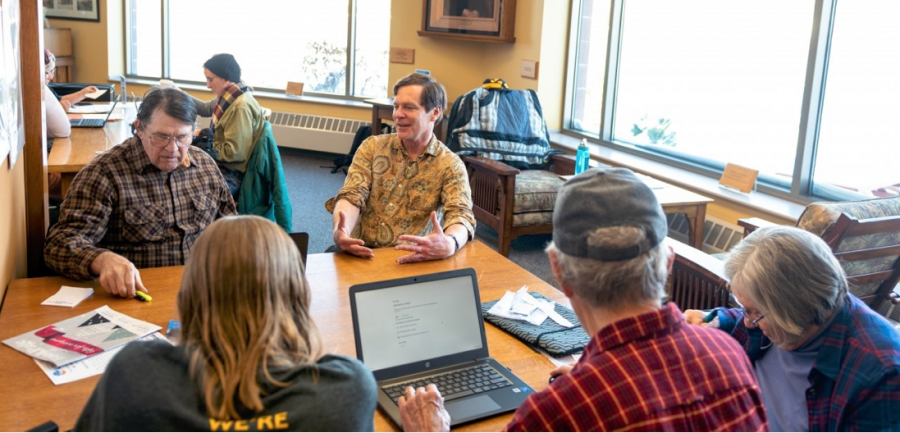
Even if you design technology well, you still need to have supports in place to help people learn to be confident users.
Digital literacy. It’s the ability to use technology to find, evaluate, and apply information. If you’re digitally literate, you can effectively operate whatever device or technology you’re using to gather the information you need.
For younger generations, digital literacy seems to come naturally. For many older adults, however, using computers, smartphones, and other digital devices remains unfamiliar territory and can be a source of great anxiety.
Since 2011, Michigan Tech students and faculty have been helping older adults break down these digital barriers through Building Adult Skills in Computing (BASIC), a free weekly tutoring program at Portage Lake District Library, Houghton.
“Even if you design technology well, you still need to have supports in place to help people learn to be confident users,” says Charles Wallace, associate professor of computer science.” If people aren’t confident, they’re not going to be willing to explore and figure it out.”
“Many in the technology world haven’t realized that simply being older might cause accessibility issues,” he says, “and that’s what we’re addressing.”
Led by Wallace and Kelly Steelman, chair and associate professor, cognitive and learning sciences, BASIC tutors use a “let’s figure it out together” approach, making BASIC a comfortable, safe spot for people to ask questions and feel empowered to seek out answers.
Steelman and Wallace are studying the techniques of the most effective BASIC tutors—including both Michigan Tech professors and students—to reduce anxiety, encourage exploration, and boost confidence.
They plan to use the results of their research to develop software that will work in tandem with other tutoring programs to help support development of digital literacy.